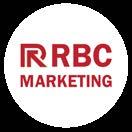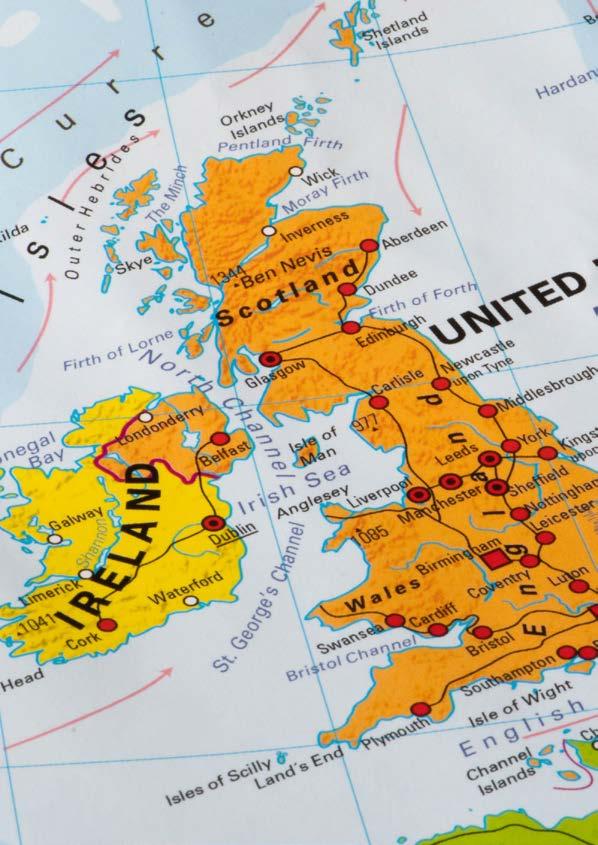

The DIY Guide to
Geo Pages



The Fast Track to Local Leads for Trades & Construction Businesses

If you ever wished more people in local towns actually found your website, “Geo pages” are the answer. They’re simple and powerful. And the likelihood is that your competitors aren’t doing them well (if at all.)
What is a Geo Page?
A geo page is a webpage focused on one service, in one area, such as “Boiler Repairs in Macclesfield” or “Roof Repairs in Banbury’’. It tells Google (and customers) exactly what you do and where. Done right, geo pages will help people in those places find your business when they search online and will get your phone ringing with local leads.
Who This Guide Is For
This guide is for busy construction and trade business owners who want to win more local enquiries without hours of study or technical headaches. No jargon. No SEO degree needed. Just clear, actionable steps anyone can use.
What You Will Need
Before getting started, you will need to gather some information will make the process quicker and will help your geo pages feel genuinely local and trustworthy. Here’s what helps most
• A list of all towns and areas you serve.
• A few minutes to jot down your main services.
• Any reviews/testimonials from customers in those areas
• Real photos of your work (if available)
• Five minutes per page
How To Make Geo Pages in Six Easy Steps
Ready to turn your website into a magnet for genuine local enquiries? Just follow these straightforward step-by-step instructions.
Step 1: Make Your List


For example:
Write down all the towns, villages, and postcodes where you want more work, and the services you offer in each of them.
For most businesses, your main services, such as extensions, loft conversions, or driveways, will be the same for every area on your list.
Wakefield: Extensions, Loft Conversions, Driveways
Pontefract: Extensions, Loft Conversions, Driveways
Barnsley: Extensions, Loft Conversions, Driveways

List your full list of services for each town or village. If a town has a unique need (like more patio work in a leafy suburb), add that for the relevant town. Otherwise, keep the services consistent across each location.
Wakefield: Extensions, Loft Conversions, Driveways
Pontefract: Extensions, Loft Conversions, Driveways
Barnsley: Extensions, Loft Conversions, Driveways
Castleford: Extensions, Loft Conversions, Driveways, Paving
Tingley: Extensions, Loft Conversions, Driveways, Paving
Rothwell: Extensions, Loft Conversions, Driveways
Step 2: Find the Main Keyword for Each Town and Village
For every town or village on your list, the “main keyword” is simply your service and location put together. For example, “Bathroom Fitter in Bristol” or “Loft Conversion in Pontefract.” This is what people near you are likely to type into Google when they need your help.
Main Keyword = ‘’Service” + “in” + “Town” (e.g. “Kitchen Fitter in Watford”).

Loft extention in Barnsley
You can find ideas for these keywords by typing your service and area into Google and seeing what comes up. And if you scroll down the page, you will see ‘’ Also search for’’ for more ideas.
Tools like Google’s Keyword Planner or Ubersuggest make it even easier.
When each page is added to your website, this main keyword should be included in:
The main page headline (the H1 header)
The meta page title (the clickable title you see in Google results)
The meta description (the short summary you see in Google results, under the page title)

Example:
If your service is “Boiler Repairs” and your area is “Ipswich,” your keyword would be “Boiler Repairs in Ipswich.” This would be included in the main heading at the top of the page and the page title and meta description that show up on Google.

Step 3: Write Unique Local Content
When writing the content for a geo page, it’s not enough to swap out the town name and copy the rest of your page from somewhere else. Every location page needs its own unique content to work well.
When you write something that’s clearly about a specific area, search engines are far more likely to show your business to local customers searching for that service. Unique content also feels genuine and local to readers, builds trust, and makes it obvious your business actually serves, and understands, the area.
Start with an introduction, like: “Looking for [service] in [town]? You’re in the right place.”
Add details that show you know the area. Talk about jobs you’ve done in the area, and why you like working there. You could also mention landmarks, common local issues, and local events.
Add testimonials, reviews, and real customer stories from that town (if you have them).
Loft Extension in Barnsley
Loft Extension in Wakefield
Step 4: Optimise But Don’t Overdo It
A bit of clever optimisation helps search engines connect your pages to more local customers, but going too far can backfire.
Focus on making your page easy for both real people and google to understand by using your main keywords naturally. Avoid “keyword stuffing” (repeating your main keyword too many times or in places where it feels unnatural) as this can make your page sound odd to website visitors. It can also harm your ranking in Google’s results.
Use your main keyword in the headline, opening sentences, and sprinkled naturally throughout the content, but not in every single sentence.
Add your town or area name in a few places, so it’s clear where you work. Link to your homepage and your other service or town pages from each page when it feels natural.
Write for people first. Your text should make sense and feel local, not like it’s written just for a search engine.
Avoid packing in too many keywords or unrelated links. Google spots this and can ignore your page.
Make sure the page loads quickly and is easy to read on a phone.
If your web designer is uploading the page, ask them to make sure the meta title, description, and alt text for images are filled in with the right service and town.
Loft Extension in Barnsley
Step 5: Add Trust Builders
When customers look for a local trade or construction business online, they want to feel confident before picking up the phone or sending an enquiry. Adding trust builders, like customer reviews, local photos, and contact details, shows visitors you are reliable and genuinely established in their area.






















These signals don’t just help you stand out they remove doubts, convert more visitors, and can set your business apart from less transparent competitors. Trust builds enquiries, so don’t hide what makes you credible.
Clearly display your business name, address, and phone number (NAP)
Include a map, photo, and directions if possible. Add reviews and photos of your work in that location if you can.
List accreditations or local memberships.
I'm thrilled with the results! was professional, punctual, and attentive to detail. They communicated every step and brought my vision to life
David and his team were always professional, friendly and did an excellent job of replacing the fascia’s and guttering of our this company to family and friends.
Step 6: Make It Easy to Contact You
Once someone decides to contact you, don’t make it hard for them to do so. Simple, visible contact options can mean the difference between landing a new enquiry or losing it to a competitor.

Put your phone number, email, and contact form front and centre, and keep instructions clear and friendly so customers know exactly how to contact you. The easier you make it for people to get in touch, the more likely they are to take the next step and become your next local job.
Include a strong call-to-action such as “Get your free quote for [service] in [town]. Call us or use the form below.”
Keep your contact details, form, or quote button front and centre.
Step 7: Launch and Link
When your new geo page is ready, don’t just make it live and forget about it. Make sure visitors and search engines can actually find it. A smooth launch, followed by some simple linking, helps your page get noticed faster and sends strong signals that you genuinely serve that area. Linking your pages together also makes it easier for customers to find the service (and area) they want with just a couple of clicks.

Double-check your page for typos and broken links, and make sure all contact details are correct before setting it live.
Once your page is live, add links to it from your homepage, main services page, and wherever else makes sense. Include links from your new geo page back to related service pages. If you have other location pages (for different towns or villages), link between them, so customers can easily jump to the one that’s right for them.
Tell Google about your new page by submitting your updated sitemap or sharing the URL through Google Search Console. (Your web designer can do this if it sounds too technical.)
Promote the new page: share it on social media, add it to your Google Business Profile, and mention it in local directories.

Every few months, check your geo pages still have the right details, and consider updating them with new photos, testimonials, or special offers. Keeping things fresh can help you stand out and stay ahead in Google.
Loft Extension in Barnsley
Loft Extension in Wakefield
Pro Tip
Example Page Layout
1. Title: “Garden Landscaping in Luton”
2. Intro: “Looking for garden landscaping in Luton? Our local team transforms gardens across [specific area].”
3. Why Us: “We’ve helped homeowners in Luton create their dream outdoor space…”
4. Local Touch: “You might have seen our work near Wardown Park or Leagrave Road.”
5. Our Services: “Patios, timber decking, fencing & more.”
6. Photos: Include genuine images of local work, with a heading containing the service, street name and name of the town/village.
7. Testimonial: “Linda from Luton says: ‘Fantastic service and quality, quick turnaround. Highly recommend!’”
8. CTA: “Ready for a free quote in Luton? Call us on 01234 567890 or fill in the contact form below.”
Geo pages are your shortcut to more enquiries in every town. The sooner you start, the quicker the phone will ring. So, if you’re ready to start, use this guide and you’ll be ahead of most of your competitors straight away. If you would rather save time, please get in touch so we can talk about what works best for your business. You won’t get a sales pitch, just honest advice, and a quote for us to create your geo pages for you. No fuss, just practical help.
Garden Landscaping in Luton
Our Services: Click for a free quote
Great Service ” - Linda

RBC Marketing help ambitious construction businesses stand out from the competition and win more of the right customers.
With decades of sales, marketing, and business development experience within the construction industry, we understand what works, and what doesn’t, when it comes to getting your business noticed.
From websites and geo pages to lead-generating campaigns and honest advice that actually works, we keep things simple, practical, and built around your goals.
Want to grow your reputation and attract better enquiries? Let’s talk, so you can focus on running your business.




